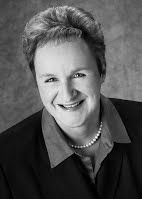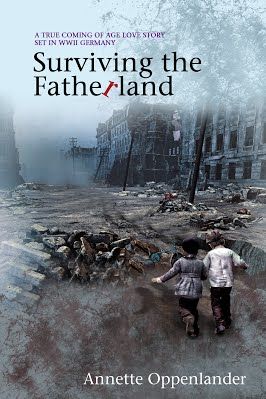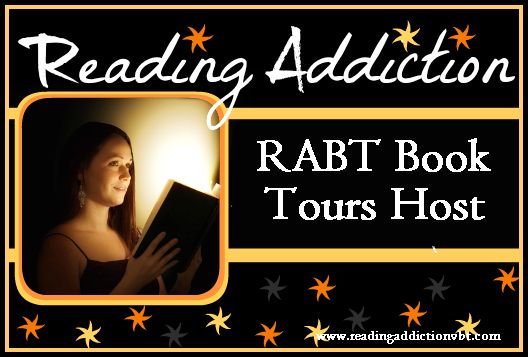Historical Fiction
Date Published: March 15, 2017
***An IWIC Hall of Fame Novel***
***Winner 2017 National Indie Excellence Award***
"This book needs to join the ranks of the classic survivor stories of WWII such as "Diary of Anne Frank" and "Man's Search for Meaning". It is truly that amazing!" InD'taleMagazine
"This family saga is wonderfully written and, aside from the emotional ramifications, very easy to read. I stayed up too late a couple of nights reading it...I highly recommend this book!" Long and Short Reviews
Spanning thirteen years from 1940 to 1953 and set against the epic panorama of WWII, author Annette Oppenlander's SURVIVING THE FATHERLAND is a sweeping saga of family, love, and betrayal that illuminates an intimate part of history seldom seen: the children's war.
SURVIVING THE FATHERLAND tells the true and heart-wrenching stories of Lilly and Günter struggling with the terror-filled reality of life in the Third Reich, each embarking on their own dangerous path toward survival, freedom, and ultimately each other. Based on the author's own family and anchored in historical facts, this story celebrates the resilience of the human spirit and the strength of war children.
When her father goes off to war, seven-year-old Lilly is left with an unkind mother who favors her brother and chooses to ignore the lecherous pedophile next door. A few blocks away, twelve-year-old Günter also looses his father to the draft and quickly takes charge of supplementing his family's ever-dwindling rations by any means necessary.
As the war escalates and bombs begin to rain, Lilly and Günter's lives spiral out of control. Every day is a fight for survival. On a quest for firewood, Lilly encounters a dying soldier and steals her father's last suit to help the man escape. Barely sixteen, Günter ignores his draft call and embarks as a fugitive on a harrowing 47-day ordeal--always just one step away from execution.
When at last the war ends, Günter grapples with his brother's severe PTSD and the fact that none of his classmates survived. Welcoming denazification, Lilly takes a desperate step to rid herself once and for all of her disgusting neighbor's grip. When Lilly and Günter meet in 1949, their love affair is like any other. Or so it seems. But old wounds and secrets have a way of rising to the surface once more.
Interview
Is There a Message in
Your Novel That You Want Readers to Grasp?
I
want people to understand what life was like for ordinary people and especially
children during that time. That generation of war children just took the abuse
and after the war ended, everyone was in a hurry to move on. Nobody gave those
kids a second thought. And so they sucked it in, grew up and created lives as
best they could. In later years they were still accused of being Nazis because
they happened to live at that time. In addition to the war theme, Lilly’s
personal struggle with the betrayal of her father and boyfriend show us how
complicated love and family relationships can be. Nothing is cut and dry, black
or white.
I
hope I can shed additional light on this horrific time in human history. I want
to make it clear that not all Germans living during the Third Reich were Nazis.
Not every person was evil. I also want readers to see some parallels to today’s
history in the U.S. This is not a political statement, but humans should be
able and willing to learn from mistakes made in the past. Right now I’m not so
sure this is happening. I also want people to know more about the way life was
lived in civilian Germany during and after the war. You can read on Wikipedia
that after the war ended, the Allied Forces provided rations amounting to
1,200-1,500 daily calories per person per day. And that was supposedly a low
amount to prevent an uprising. That is completely false. Germany’s
infrastructure was so broken, there was hardly anything. Sure, they received
ration cards with words like flour, sugar, meat and bread printed on them. But
the stores remained empty another three years until the currency reform in June
1948.
Is there anything you
find particularly challenging in your writing?
How many books have you
written and which is your favorite?
Surviving the Fatherland is my fifth published novel. It was also my
first full-length manuscript, but it took 15 years to complete. The ‘Escape
from the Past’ trilogy is a time-travel action/adventure set in medieval
Germany and the Wild West. All three books are based on actual characters and
events. The fourth novel, A Different Truth, is a historical mystery set during
the height of the Vietnam War. It examines the theme of war versus peace
movement in the world of a boys’ military boarding school.
Surviving the Fatherland is probably my
favorite because it took so much energy and emotion and it’s based on my
family. I think it’s an important book with a timeless message.
If You had the chance
to cast your main character from Hollywood today, who would you pick and why?
I’m having a hard time with this
question mainly because I don’t know who many of the upcoming young
actors/actresses are. For ‘Surviving the Fatherland’ you’d have to use child
actors, then maybe teens and a twenty-something couple. A lot would depend on
the screenplay and what is left out of the story. Screenplays are typically a
100 pages, one page per minute. My novel is 360 pages, so there’d be a lot of
cutting.
There, I circumvented your question and
made it into something else.
When did you begin
writing?
I started writing children’s stories in
the 90s. We lived in the woods and I came up with a hedgehog going on
adventures in the forest. Of course, I didn’t know anything about writing or
publishing and so these first projects went nowhere. In 2002, I interviewed my
parents about their experience in WWII as German war children and from it
sprouted the first short stories. I began writing a lot, attended conferences,
classes and critique groups. I read and read. Still, it took until 2015 to have
quality publishable work.
How long did it take to
complete your first book?
‘Surviving the Fatherland’ is my first
full-length book and took 15 years to complete. In the meantime I wrote four
other novels, but I always returned to Fatherland because it wouldn’t leave me
alone. It kept nagging and demanding to be finished. Even as late as last year,
I didn’t think I’d get it done. I must have gone through dozens of rewrites,
restructures, changes of timelines, POV and tense changes. I also changed the
title many times.
Did you have an author
who inspired you to become a writer?
Not really. I was always an avid reader, even as a child. And I remember
thinking when I was younger that I’d never be able to write a book with all
these characters, plots, arcs etc. Well, at the time I wasn’t able to. But when
I started with a children’s book in the 1990s, I noticed how much I loved the
creative process, developing characters and making them come alive on the page.
It took a lot longer, studying craft, workshops and seminars, writers groups
and lots of “butt in chair” time to get good at it.
What is your favorite
part of the writing process?
After a first draft I go back to see
what I created. Reading that first draft and seeing how my characters have
become ‘real’ people is extremely satisfying. Of course, that’s also when the
serious work of revision begins. But it’s a great feeling to see a completed
manuscript. The second time this happens is when the manuscript is ready for
publication and a beautiful new story is born.
Describe your latest
book in 4 words.
How children survived WWII
Can you share a little
bit about your current work or what is in the future for your writing?
I’m
currently researching WWII from the German soldiers’ perspective because I want
to write a story about my grandfather, Wilhelm. I’m getting in touch with the
German military government to see if any records exist of my grandfather. This
way I could place him exactly in the right unit. If I find what I’m looking
for, I’ll write a novel about Wilhelm in the war and his nine years as a POW in
Russia.
I recently
finished ‘Broken Journey, a story set during the American Civil War. It is
about a boy’s choice to protect his best friend, a slave, from a brutal attack
which forces both on separate journeys: one escapes into war, the other is sold
into slavery. Told from alternating viewpoints, one black and one white, the
story examines the power of hope and friendship, and the endurance of the human
spirit to find a way home. I’m hoping to get ‘Broken Journey’ published later
this year.
About the Author

Annette Oppenlander is an award-winning writer, literary coach and educator. As a bestselling historical novelist, Oppenlander is known for her authentic characters and stories based on true events, coming alive in well-researched settings. Having lived in Germany the first half of her life and the second half in various parts in the U.S., Oppenlander inspires readers by illuminating story questions as relevant today as they were in the past. Oppenlander’s bestselling true WWII story, Surviving the Fatherland, was elected to IWIC’s Hall of Fame and won the 2017 National Indie Excellence Award. Her historical time-travel trilogy, Escape from the Past, takes readers to the German Middle Ages and the Wild West. Uniquely, Oppenlander weaves actual historical figures and events into her plots, giving readers a flavor of true history while enjoying a good story. Oppenlander shares her knowledge through writing workshops at colleges, libraries and schools. She also offers vivid presentations and author visits. The mother of fraternal twins and a son, she lives with her husband and old mutt, Mocha, in Bloomington, Ind.
Purchase Links
Contact Links







1 Comments
Thank you for posting
ReplyDelete